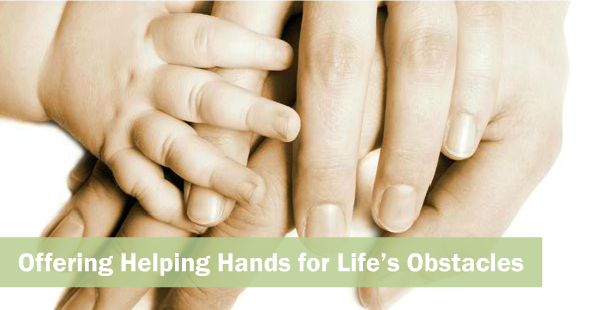What is child therapy...
If you have a broken arm or a bad cold, you go to the doctor for help and to feel better, right? Well, sometimes kids and adults have problems that can't be seen as easily as a broken bone or a runny nose.
When people have troubles with their emotions, their feelings, or the way they act, sometimes they see a psychologist (say: suh-kah-loh-jist), psychiatrist (say: suh-kye-uh-trist), or therapist. These are people who have gone to school for special training in the way people think and feel and know how to help people feel better.
There are many reasons to see a therapist, psychologist, or psychiatrist, but the biggest reason is so that you can start feeling better. Maybe you're having trouble getting along with your classmates, your brothers or sisters, or your mom or dad. Or maybe you're having problems learning or paying attention or doing your homework and your grades aren't as good as your mom or dad think they could be.
You should always feel comfortable during these visits. That means you don't have to do anything you don't want to do or talk about anything you don't want to talk about. On your first visit, your mom or dad might come in with you. The three of you could talk together about your feelings, the problem or situation, and anything else that is bothering you. After you feel comfortable, your mom or dad can wait for you outside.
***
What is Filial Therapy?
Filial Therapy strives to enhance a child-parent relationship by empowering the parent with new and innovative ways to interact with their child. This unique form of therapy provides an environment in which the child receives concentrated attention from the parent, thus lessening the anxiety of the child and allowing him or her to unlearn behavior patterns that lead to miscommunication. Parents are given the skills necessary to practice effective listening and respond to a child’s emotions as well as tools to help encourage the enhancement of the child’s self-esteem. Therapists teach the parents how to set therapeutic limits and utilize principles of play therapy, at-home sessions, and how to provide an authentically accepting and understanding atmosphere in which their child will find security to explore their own emotions and the relationship with their parent.
Over time and with clear and concise instruction, the parent learns to set specific limits and engage the child in consistent and dedicated sessions involving play. The result is an environment in which the child begins to feel accepted and learns to express themselves in a socially adaptable and acceptable manner that resides within the limits set by the parent. The child eventually begins to see the relationship with the parent in a new light and learns to respond according to the model developed in the sessions.
Information borrowed from GoodTherapy.org
***
Is therapy confidential?
Generally, the confidentiality of all communications between a client and a therapist is protected by law, and I can only release information about our work to others with your written permission. However, there are a few exceptions.
Exceptions to confidentiality include if I believe my client is a danger to self or others. I then may need to breach confidentiality in order to provide protection and safety. Also, if I believe that a child, elderly person or disabled person is being abused, I am required to report this abuse to a state protective agency.
Finally, in some circumstances such as a child custody proceeding and proceedings where the client’s emotional condition is an important element, a judge may require my testimony if s/he determines that resolution of the issues necessitates it.
When I am treating a couple or family, the identified client is the couple or family. In the event that a partner or family member were to contact me and disclose information, I would encourage the person to tell the other member(s). During the next visit, I will inform the person(s) that we had a conversation and then prompt the client to disclose the information during session. Exceptions to this policy, would be if I judged the information received quite detrimental to the therapeutic process.
With regards to those who are under 18, I inform parents with the general information of my work with the child unless the child is putting themselves at high risk for harm.. If I feel information needs to be shared, I will encourage the child to do so with the parents or will help them to do so. If you wish for me to able to talk to your child’s teacher or school, you will have to sign a release of information form prior to any conversations taking place.









